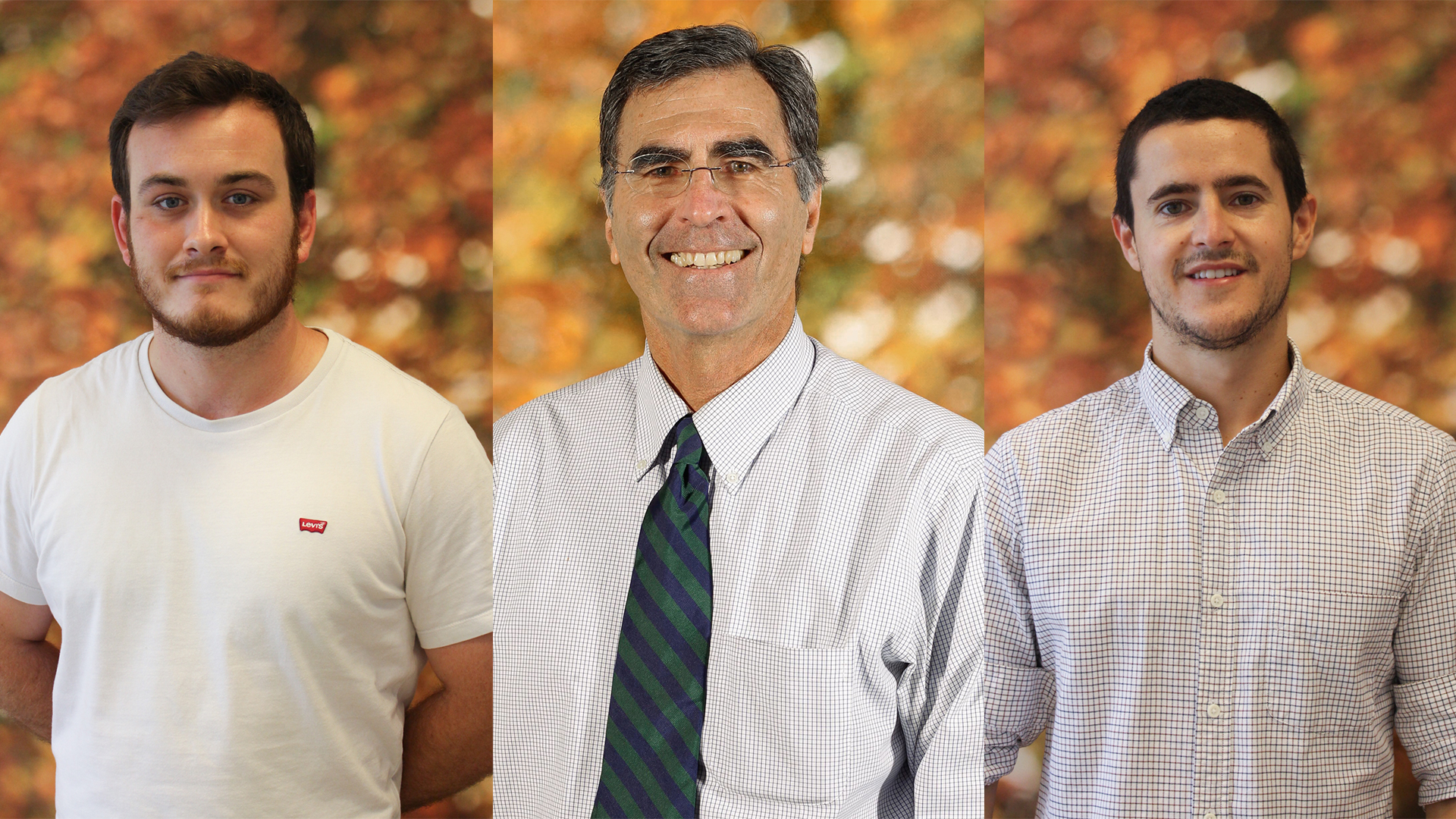News
LATEST NEWS AND EVENTS FROM THE SCHOOL OF ENGINEERING
Researchers at Tecnun publish mathematical model that can reduce errors in quantum computers
Companies such as Airbus and Volkswagen are already using quantum technologies to solve problems that traditional computing cannot tackle.

FotoHugoLópez Sarasa/Josu Etxezarreta, Pedro Crespo and Patricio Fuentes, researchers at the School of Engineering.
23 | 07 | 2021
In a matter of seconds, quantum computers perform certain tasks that a home PC would take millions of years to solve. They are useful for manufacturing new drugs, encrypting bank passwords that protect users' access to their funds, or even calculating routes that improve traffic flow. These are specialised tools already used by companies, such as Airbus or Volkswagen, and by governments to solve problems that traditional computing methods would not be able to tackle efficiently.
However, quantum information is prone to errors that make the computations currently performed not entirely reliable. Researchers from the department of Biomedical Engineering and Sciences (IBC) of Tecnun-School of Engineering of the University of Navarra, Josu Etxezarreta, Patricio Fuentes and Pedro Crespo, have just published a article in the scientific journal Nature npj Quantum Information, whose goal is to decrease the error rate in future quantum computers and obtain accurate results. "The algorithms that we develop act as correction methods and are able to detect and correct those faults that corrupt the information..
Quantum error-correcting codes will be a fundamental piece in the development of future computers based on a large issue of qubits -which are the units of quantum information-. In this sense, our methods will make it possible to design quantum computers whose operations are reliable and useful for companies," says Josu Etxezarreta, lead author of article.
Specifically, Full Professor Pedro Crespo, professor at Tecnun and director of the Mathematical Principles of Information and Communications group at department IBC, explains that the mathematical models they propose are more accurate and allow modeling the nature of the "quantum noise" of these computers. These models will enable the design error-correction codes that are effective in keeping quantum information "clean". They have been based on the qubit technology used by IBM and Google. "We saw that the parameters that describe how qubits interact with their environment are not constant over time, and from this we proposed a mathematical model that includes these temporal variations," says Etxezarreta.
The collaboration of Javier García-Frías, professor at the University of Delaware and also author of article, as well as Jonas Bylander, researcher of Chalmers University, should be noted.
An international benchmark dedicated to quantum algorithms is Multiverse Computing. development of quantum algorithms is Multiverse Computing; located in Donostia-San Sebastián, its aim is to minimize the risk and maximize the profits of its clients' investment portfolios. "Our group remains at contact with this start-up and we have plans to collaborate in the near future on research projects," concludes Patricio Fuentes.
